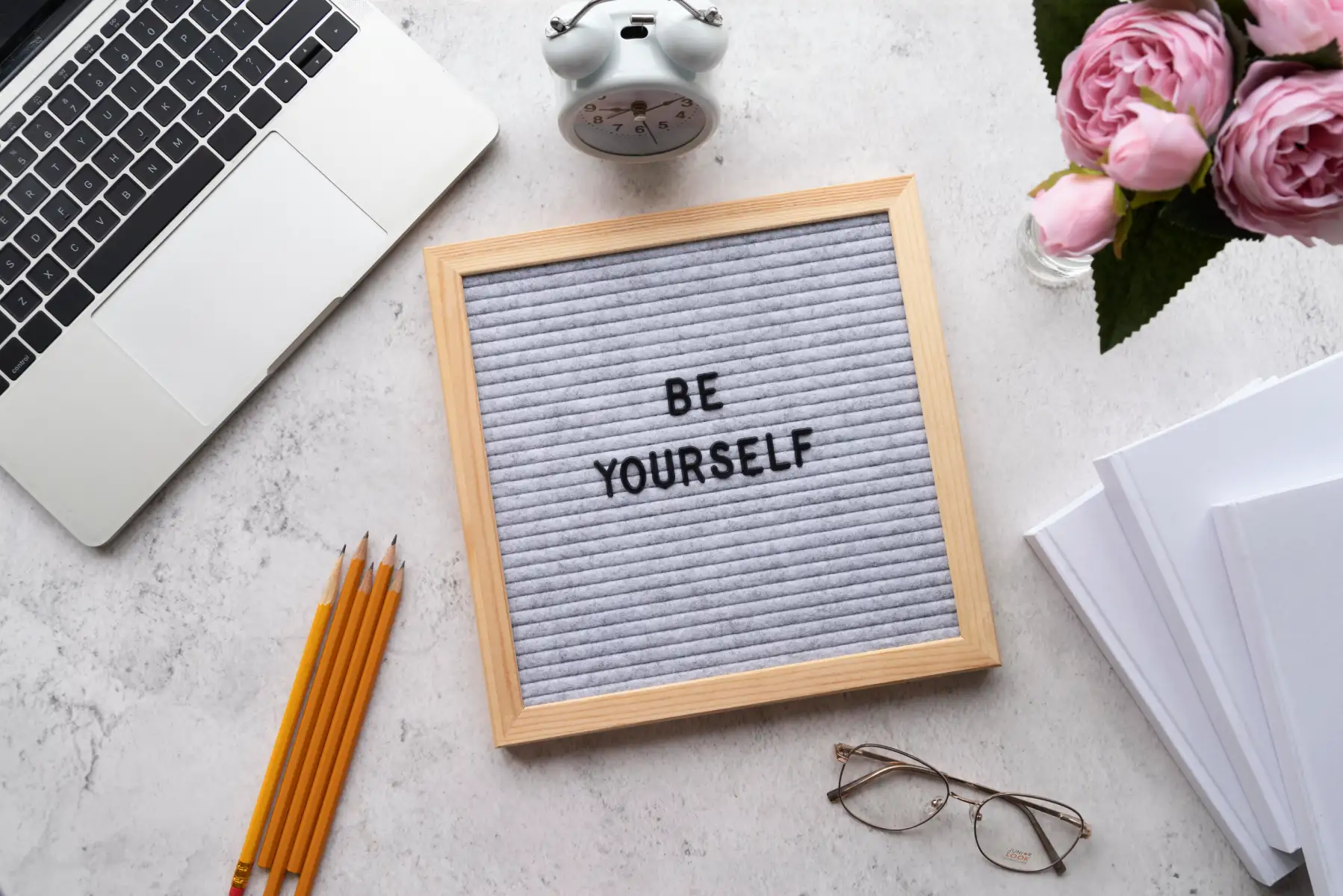Introduction to Self-Esteem Improvement
Self-esteem is an integral part of our personal development and mental health. It influences how we perceive ourselves, interact with others, and navigate challenges in life. When self-esteem is high, we feel confident, capable, and resilient; when it’s low, we may struggle with self-doubt, insecurity, and dissatisfaction. Building self-esteem is a journey that involves cultivating a positive self-image and improving how we value ourselves.
Low self-esteem can stem from a variety of factors, such as past experiences, negative self-talk, or societal pressures. However, self-esteem is not fixed—it is something we can actively work to strengthen. Building self-esteem is not just about feeling good in the short term but also about acquiring sustainable tools for self-improvement and mental well-being.
In this whitepaper, we’ll explore techniques for boosting self-esteem, the power of positive affirmations, and practical strategies for confidence building. Whether you’re looking to overcome self-doubt or simply enhance your self-image, the following techniques can help you establish a healthier relationship with yourself.
Techniques for Boosting Self-Esteem
Building self-esteem requires deliberate action and consistent effort. Below are some proven techniques to help boost your self-esteem and foster a strong sense of self-worth.
1. Practise Self-Compassion
One of the key pillars of self-esteem is self-compassion—the ability to treat yourself with kindness in moments of failure or difficulty.
- Acknowledge Imperfection: Understand that everyone makes mistakes or falls short at times. Instead of berating yourself, focus on growth and learning.
- Avoid Self-Criticism: Challenge your inner critic by rephrasing negative thoughts into constructive feedback.
- Be Gentle with Yourself: Rather than comparing yourself to others, celebrate your unique strengths and accomplishments.
Self-compassion fosters resilience and helps you focus on personal growth rather than dwelling on shortcomings.
2. Set Realistic Goals
Unrealistic expectations can lead to feelings of failure and inadequacy, while achievable goals build confidence and a sense of purpose.
- Break Down Big Goals: Divide ambitious goals into smaller, manageable tasks.
- Celebrate Achievements: Acknowledge every milestone, no matter how small, as each step contributes to long-term success.
- Reflect on Your Strengths: Build goals around areas where you naturally excel to create a foundation of confidence.
Accomplishing realistic goals reinforces your ability to succeed and uplifts your self-esteem over time.
3. Gain Control Over Negative Self-Talk
Our inner dialogue has a significant impact on how we perceive ourselves. By managing negative self-talk, you can reshape how you view your abilities and worthiness.
- Challenge Negative Thoughts: If you catch yourself thinking, “I’m not good at this,” ask, “What evidence supports this?” Most of the time, negative self-talk is exaggerated or unfounded.
- Replace Negativity with Positivity: Reframe unhelpful statements into affirming alternatives, such as transforming “I failed at this” into “This was a great learning experience.”
Learning to control your inner dialogue takes practise but can help replace self-doubt with confidence and self-belief.
4. Build Healthy Relationships
The people we surround ourselves with strongly influence our self-esteem. Positive relationships provide encouragement, while toxic ones can undermine our confidence.
- Seek Supportive Friends: Invest time in relationships with people who uplift, inspire, and affirm your value.
- Set Boundaries: Limit contact with individuals who criticise, belittle, or drain your energy.
- Communicate Openly: Share your feelings with trusted friends or family to avoid bottling emotions.
Healthy relationships provide a foundation of mutual encouragement that bolsters your self-esteem.
5. Practise Gratitude Daily
Focusing on gratitude shifts your attention from what you lack to what you already have. This boosts positivity and enhances your overall outlook on life.
- Write down three things you’re grateful for every day—big or small.
- Reflect on your accomplishments and moments that brought you joy.
- Appreciate your personal qualities, such as kindness, determination, or creativity.
Gratitude helps you recognise your own worth and reminds you of the good things you contribute to the world.
6. Step Outside Your Comfort Zone
Taking risks or embracing challenges helps you develop confidence in your abilities. Staying within your comfort zone can reinforce self-doubt and prevent growth.
- Start Small: Take manageable risks that push you slightly beyond your current confidence level.
- Learn from Challenges: Use the experience—whether successful or not—to grow rather than judge yourself harshly.
- Celebrate Courage: Recognise the bravery it takes to try something new, regardless of the outcome.
Each small step outside your comfort zone helps to expand your sense of self-efficacy and resilience.
The Role of Positive Affirmations
Positive affirmations are a powerful tool in building self-esteem and transforming negative thought patterns into positive ones. They are short, meaningful statements that you repeat to yourself to inspire self-belief and reinforce positive thinking. Here’s how they work and why they’re so effective:
1. Rewiring Thought Patterns
Affirmations can challenge and overwrite negative beliefs about yourself by training your brain to focus on positive attributes.
- For example, replacing “I’m not good enough” with “I am capable and worthy of success” shifts your focus to your strengths rather than perceived shortcomings.
When used consistently, affirmations help create a more positive self-image over time.
2. Enhancing Confidence
Repeating affirmations like “I am improving every day” or “I am strong, confident, and capable” encourages a belief in your abilities and sets the foundation for confidence building.
3. Fostering Resilience
Positive affirmations can serve as reminders to persevere through challenging times. Statements like “I can handle this” or “I grow stronger with every challenge” remind you of your inner resilience.
How to Practise Positive Affirmations
- Write Tailored Affirmations: Choose affirmations that resonate with you personally.
- Repeat Them Daily: Say affirmations aloud or write them in a journal every morning or evening to reinforce positivity.
- Combine with Visualisation: Imagine yourself thriving in situations where your affirmation applies to make it feel more real and attainable.
Positive affirmations are a simple but effective practice that can reshape your mindset, enhancing self-esteem through self-belief and mental resilience.
Conclusion
Building self-esteem is an essential part of improving mental health and fostering personal growth. Low self-esteem can hold you back, but it is not permanent—through self-improvement techniques, you can develop the confidence and self-belief needed to reach your full potential.
From practising self-compassion to managing negative self-talk, setting realistic goals, and building positive relationships, there are many strategies to help boost your self-esteem. Incorporating gratitude and stepping out of your comfort zone further solidifies your sense of worth. Additionally, the power of positive affirmations lies in their ability to help reframe thoughts, build confidence, and foster resilience.
Remember, improving self-esteem is a journey, not a destination. Small, consistent efforts make a significant difference over time. Embracing these techniques not only enhances how you perceive yourself but also positively impacts your mental health and overall well-being. By taking steps toward understanding your value, you can move forward with greater confidence and self-assurance.










